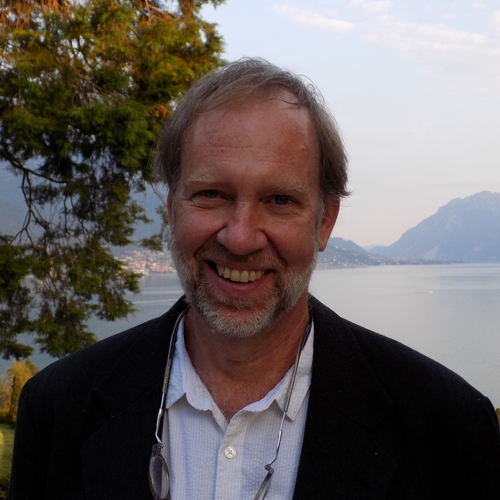Before introducing the theme of his April 22 talk on abuses in medical research, University of Minnesota philosophy professor Dr. Carl Elliott discussed a literary device in detail. “Man-in-a-hole,” coined by the acclaimed American novelist Kurt Vonnegut, describes a story structure in which the main character, upon facing adversity, plunges into crisis yet overcomes this challenge at the finale. For instance, the famous works “Alice in Wonderland” and “The Wizard of Oz” are good examples of this literary device.

How does this connect to bioethics?
Before answering this question, Elliott dove into his testimony investigating the case of Dan Markingson at the University of Minnesota. Almost twenty years ago, the university’s Department of Psychiatry recruited Markingson, a young man suffering from psychosis, to take part in one of its drug studies. As Markingson could not independently provide consent, his physician enrolled him in the study against the strong dissent of his mother, Mary Weiss. Despite countless emails, phone calls, and appeals to university staff and researchers, the study continued, culminating in Markingson’s suicide.

Afterward, upon hearing about this case, Elliott decided to thoroughly investigate and look into potential abuses and conflicts of interest. It was a long, strenuous process that took upwards of six to seven years, and in 2015, vindication was finally delivered via a shell-shocking report on conflicts of interest, clinical trial mismanagement, and other injustices.
Was justice served? Unfortunately, quite the contrary. “It was a failure,” Elliott remarked, adding that the report did not amount to anything substantive. “There was no reform, no added accountability, and no payments to Weiss [Markingson’s mother].”
Tracing back on his introduction using the literary analogy, Elliott demonstrated to his audience that whistleblowers’ experiences are supposed to mimic “man-in-the-hole” stories. After doing the “right thing”, the clinical injustices should be stopped, and the perpetrators should be punished accordingly. However, this is rarely the case: not only are whistleblowers outnumbered in their institutions by colleagues unsympathetic to their cause, but they are also targeted by their superiors for speaking out.
The truth is “doctors and nurses know that patients are being harmed and exploited,” Elliott said, yet “[hospitals] stonewall the press, rarely apologize, wand ostracize, even sue, the whistleblowers.” Hence, it’s fascinating that certain brave individuals are willing to broadcast the truth even in such circumstances: what is a whistleblower’s motivation in speaking out?
After speaking with numerous whistleblowers, Elliott was amazed by the number of “non-answers” he received. Most interviewees said something along the lines of “I did it because that is the type of man I am,” supporting Elliott’s argument that there is an honor and shame component in their actions. For many whistleblowers, they lived every day pondering “How do [I] maintain [my] self-respect when [I] lost it completely in the entire medical community?”, as described by Elliott. The overwhelming nature of the ongoing evil made most interviewees feel as if they had no choice but to speak out.
If whistleblowers are so certain that they are doing the right thing, how come nearly half of all whistleblowers in one study considered committing suicide after their act of bravery? In Elliott’s words, whistleblowers are “radioactive,” frowned upon by larger society and hated by former colleagues. They almost certainly will lose their jobs and never be able to practice in the medical profession again. In one sense, “[the whistleblower] is the only one gullible enough to riot against the rigged system.”
Not only is the whistleblower punished, but the perpetrators are also most often shielded from responsibility, being awarded the highest honors in their fields or institutions right after their exposure by investigative panels. Elliott sequentially described the fate of six malicious researchers, none ever charged with wrongdoing and instead honored by their peers. For Elliott’s personal story, one of the culprits of the Markingson case, the UMN chair of psychiatry at the time, was praised by the university up until his death. On the other hand, Elliott was exiled from the medical school, the number one punishment for doctors and nurses.
Given the many obstacles confronting whistleblowers, are there any factors helping them rise to the occasion of telling the truth? According to Elliott, one of the strongest factors supporting whistleblowers in their mission is solidarity in rallying for justice. For many of the cases brought up in the talk, three to four medical professionals together sounded the alarm, sharing the burden of societal opposition and supporting each other during the whistleblowing process. “Standing alone is a recipe for self-demolition,” Elliott said.
Elliott promised a dispiriting talk at the introduction of his lecture — and he delivered. Yet, to an audience member like me, there were many glimpses of hope shining throughout the lecture. Not only was I amazed by the bravery of whistleblowers like Elliott, but I was also inspired by the persevering notion of justice amongst members of our medical community, individuals whom our society respects the most. Against all odds, countless individuals risked their professional lives for goals greater than themselves, an honorable sacrifice.
This lecture’s theme of bioethics reminds us how robust science and clinical medicine depend upon ethical conduct and a strong foundation in moral code. At Duke, a shining hub of biomedical research, we must continue to rally for bioethics implementation and be cognizant of the humanities’ importance in all that we do. We must support the work of ethicists like Dr. Elliott, empowering the movement toward health equity and justice.

